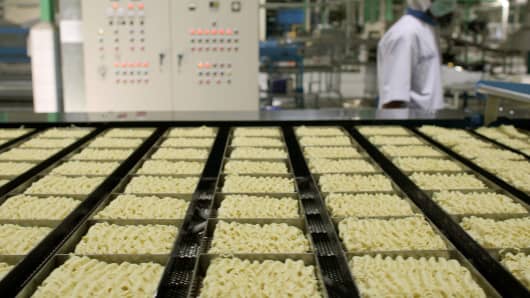Years of inflation in Chinese wages and freight costs have chased several US manufacturers back home from China. Now a British food producer is delivering arguably the ultimate blow to the one-time factory of the world – it is transplanting noodle-making from Guangzhou to Leeds.
The phenomenon of "re-shoring" is gaining traction globally as the cost of doing business in China, including transport, catches up on developing markets. The differential is shrunk yet further in Britain by the renewed weakness of sterling.
Symington's, the maker of Ragu pasta sauce and Golden Wonder's pot noodles, says it is bringing noodle manufacturing on to British soil, cancelling its Chinese contracts and creating about 50 jobs in the process, in the latest sign that offshoring – popular in recent decades as a means of exploiting lower labor and land costs – is falling out of favor in the UK as it has in the US.
Henrik Pade, business development manager at Symington's, said the move was driven by the need for quicker response times – when a retailer requests more stock they do not want to wait for a container ship to trawl across the sea – and cost.
"We can produce for roughly the same cost today in Yorkshire as we are out of China," said Mr Pade. "If you go back in time, it would probably have been 30-35 per cent less." This comes after years of wage inflation of 10-20 per cent in the heartland of China's factories in the Pearl River Delta.
According to EEF, the UK manufacturers' association, there is a "fairly consistent trickle" of manufacturers returning some production to the UK: a survey carried out in 2011 showed one in seven bringing some work back onshore.


